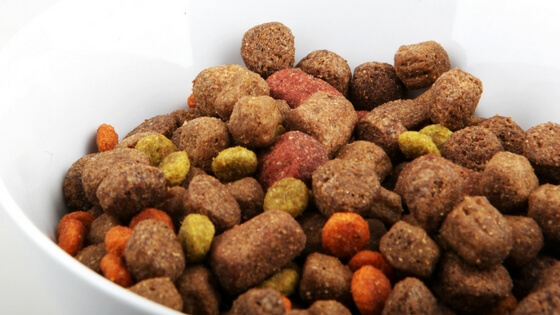
By Gabrielle Feldman and Dr. Kathy Boehme
Did you know that goat’s milk, not cow milk, is the most consumed milk in the world? Recently, goat's milk has been gaining popularity in the United States-for people and pets alike. With most new fads, it’s important to do some research before jumping on the bandwagon.
Recently we have been seeing a lot of people come in who have added goat’s milk to their dog’s diet. People are using it as a supplement to help with a host of disorders including gastrointestinal disease, allergies, arthritis, and other causes of joint inflammation and cancer. Some clients have said they thought it helped their pet’s conditions, while others saw no benefit.
Is Raw Goat Milk Safe for Dogs?

Photo Credit: Health Gauge
Many people believe in feeding their dog a raw food diet (read our blog about raw food diets here). A veterinary nutritionist would tell you to avoid any raw products because of pathogenic bacteria. According to the CDC (Center for Disease Control), those who consume raw milk are at risk of ingesting germs such as E. Coli, Salmonella, Listeria, Brucella, Campylobacter, and Cryptosporidium. Any time you give your pet an uncooked product, you run the risk of them ingesting a pathogen.
Is Goat’s Milk Better Than Cow’s Milk?

Proponents of goat’s milk claim that it has far superior benefits to cow’s milk. However, according to the data of the USDA, the differences are minor. An article published by the University of California Berkeley points out those minor differences. According to the article:
- Goat’s milk is a little higher in calcium. ( 325 milligrams per cup, versus 290 in cow’s milk)
- Goat’s milk is higher in potassium, niacin, and vitamin A.
- Goat’s milk is lower in vitamin B12, folate, and selenium.
- Neither are good sources of the vitamins listed above; therefore, neither has a nutritional advantage over the other.
- Both are commercially fortified with vitamin D.
- Goat’s milk almost has the same amount of lactose as cow’s milk.
- Some people claim that goat’s milk is less allergenic because of the protein structure. However, studies indicate those who are allergic to cow milk proteins are just as likely to be allergic to goat milk proteins.
- Further claim that because of goat’s milk smaller fat globules,(or “naturally homogenized”), it’s more easily digestible. But homogenization also reduces the size of the fat globules in cow’s milk.
The Drake Center’s Stance on Goat Milk for Pets
Unfortunately, there are no objective documentations or studies on the benefits of the use of goat’s milk for dogs. Integrative medicine expert and partner at The Drake Center for Veterinary Care in Encinitas, Dr. Kathy Boehme has this to say when it comes to goat’s milk for pets:
"I don’t know if goat’s milk would hurt your pet as long as it is not fed in large enough quantities to unbalance the diet. I think it can be dangerous if it used in place of known appropriate treatments. From an Eastern medicine standpoint, there are certain patterns in pets where it could help, and there are certain patterns where it may exacerbate the existing problem."
As with most “cure-alls”, there is never a one size fits all formula when it comes to treating your pet. We do see some anecdotal evidence from some clients that adding goat’s milk to their dog’s diet has helped with certain symptoms. Our hope is that in the future, there will be studies conducted and published regarding the subject. From a medical standpoint, we caution people from delaying necessary medical care that will benefit their pet.
If you are considering feeding your dog goat’s milk, we recommend discussing it first with your veterinarian. If you would like to schedule a general appointment with your veterinarian or a nutritional consultation with Dr. Boehme, please contact us here.
Other articles you may be interested in:

